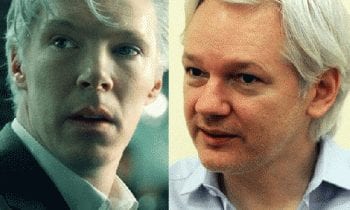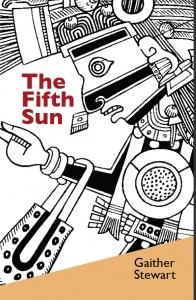Unafraid to swim against the grain: political novels for any season
Blitz Reviews—
Patrice Greanville
 Progressives who have the rare talent to pen novels—captivating ones at that—are turning to that form to educate and entertain their fellows about the global corruption of all forms of representative government (which was never that representative to begin with) in what optimists still call “Western democracies.” Some are actually professional novelists, like our own Gaither Stewart. who has written extensively about such topics. His Europe Trilogy, comprising The Trojan Spy and Lily Pad Roll, (a third volume is in preparation), written as spy thrillers rivaling John le Carré’s best outings, explores issues of big power confrontation, Cold War politics, subterranean shenanigans, history, culture, and the century-old efforts of the global plutocracy to destroy, encircle, and eventually annihilate all attempts by humanity to create a non-capitalist model of governance. In general this has meant Russia and China, as the two most powerful nations with a history of socialism, but the military machinery and the engines of demonizing propaganda will promptly turn on any nation that runs afoul of the plutocrats and their shills in Washington.
Progressives who have the rare talent to pen novels—captivating ones at that—are turning to that form to educate and entertain their fellows about the global corruption of all forms of representative government (which was never that representative to begin with) in what optimists still call “Western democracies.” Some are actually professional novelists, like our own Gaither Stewart. who has written extensively about such topics. His Europe Trilogy, comprising The Trojan Spy and Lily Pad Roll, (a third volume is in preparation), written as spy thrillers rivaling John le Carré’s best outings, explores issues of big power confrontation, Cold War politics, subterranean shenanigans, history, culture, and the century-old efforts of the global plutocracy to destroy, encircle, and eventually annihilate all attempts by humanity to create a non-capitalist model of governance. In general this has meant Russia and China, as the two most powerful nations with a history of socialism, but the military machinery and the engines of demonizing propaganda will promptly turn on any nation that runs afoul of the plutocrats and their shills in Washington.
Against this backdrop, events in the Ukraine are but the latest demonstration of this American modus operandi, a class-driven, criminal dynamic that seeks as its ultimate goal nothing less than the crippling and/or carving up of Russia itself. I presume Putin and his advisors are fully ware of this, because if they aren’t we are in worse shape than anyone could imagine. That such policy agenda may result in a global conflagration with horrid planetary outcomes seems of no consequence to the cliques at the helm of the US government, especially but not limited to its rabid neocon base.
As we write these lines, most of the “visible” State Department and foreign policy establishment, and numerous hangers on is comprised of such neocons — Condi Rice, Samantha Powers, William Kristol, John Bolton, Paul Wolfowitz, Richard Perle, Douglas Feith, Scooter Libby, Elliot Abrams, and Michael Ledeen (see below), to name just the most notorious. We could go on, as this malignant tribe is as common and fertile as toxic fungus in a dank basement. The neocon disease, after all, is a fully bipartisan plague.

 Last year we also saw another leading contributing editor to The Greanville Post, Dr Steven Jonas, issue a revised edition of his classic, The 15% Solution, How the Republican Right Took Control of the US Government, alerting us to the real and present danger (to use a phrase coined by the anticommunist mafia to signify “the Communist menace”) but in this case representing the Christofascists deep in our cultural fabric, people who will not relent or give up their belief in the necessity to install a “Christian nation” on US soil, by any means necessary. The book has been extremely well received, with one commenter summing up the consensus: “[this book] could be the needed antidote that prevents a coup establishing a fascist Christian nation.”
Last year we also saw another leading contributing editor to The Greanville Post, Dr Steven Jonas, issue a revised edition of his classic, The 15% Solution, How the Republican Right Took Control of the US Government, alerting us to the real and present danger (to use a phrase coined by the anticommunist mafia to signify “the Communist menace”) but in this case representing the Christofascists deep in our cultural fabric, people who will not relent or give up their belief in the necessity to install a “Christian nation” on US soil, by any means necessary. The book has been extremely well received, with one commenter summing up the consensus: “[this book] could be the needed antidote that prevents a coup establishing a fascist Christian nation.”
 In the same vein we now have another worthy title, this one authored by John Rachel. In his own words, An Unlikely Truth “is my attempt to help remedy the political nightmare that America has become …”
In the same vein we now have another worthy title, this one authored by John Rachel. In his own words, An Unlikely Truth “is my attempt to help remedy the political nightmare that America has become …”
Gerald Everett Jones has written a very good and concise review of this title, so I will simply yield the floor to him, while adding my endorsement:
season, do consider these books as the gift that will surely keep on giving. Clarity. Maturity in the way you perceive politics. I can’t think of any task facing American activists, awakened USers—apart from joining the political process at all conceivable levels (and not falling for the trap that elections are the main or only track!) more urgent than helping to open the eyes of our compatriots as to the imposture they live under. The monstrous capitalist brainwash has to be overcome if humanity is to survive and the planet avoid collapse across all its vital dimensions. If this can be done while also engaging the public’s imagination, so much the better.

 M
M
